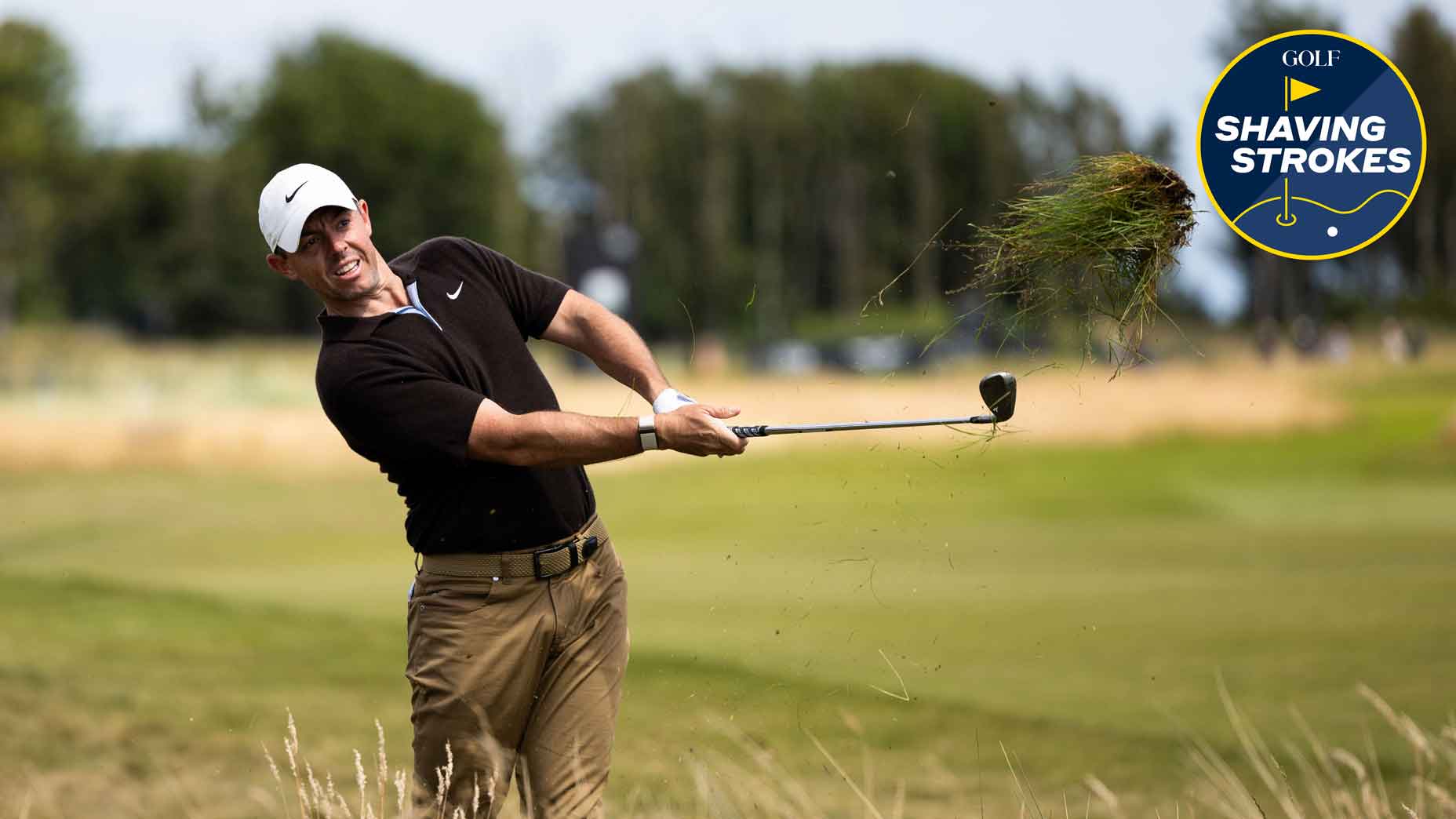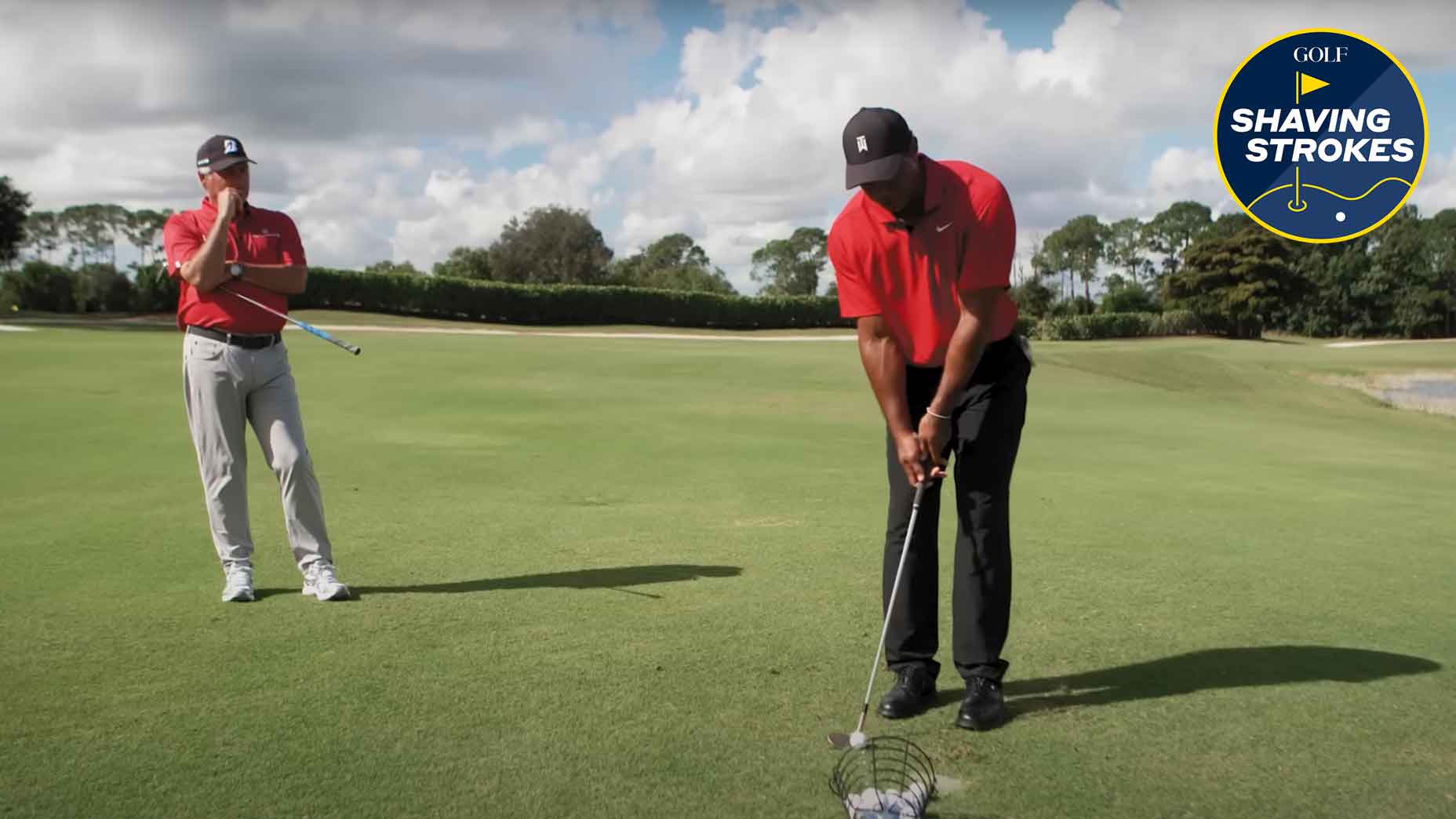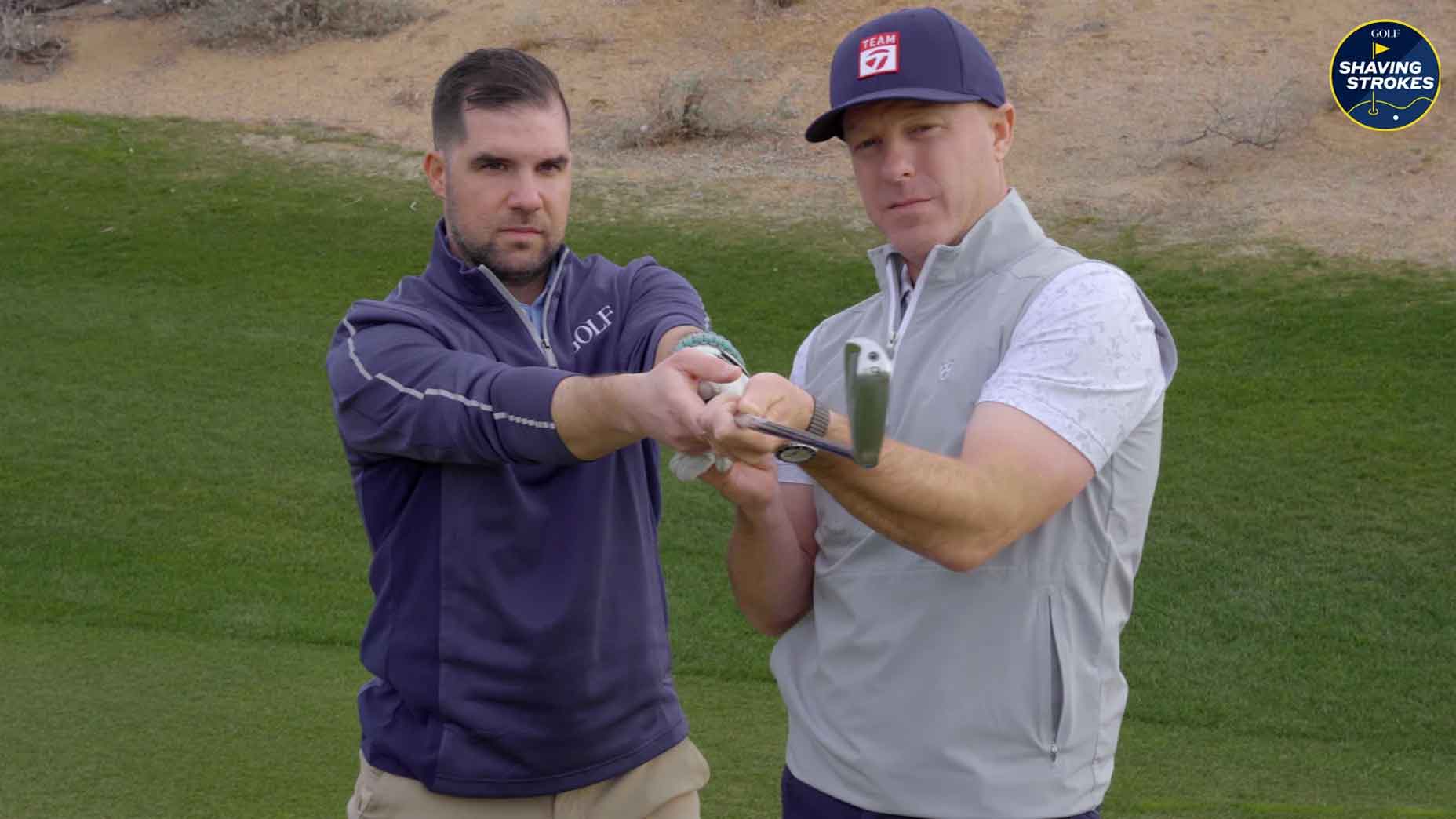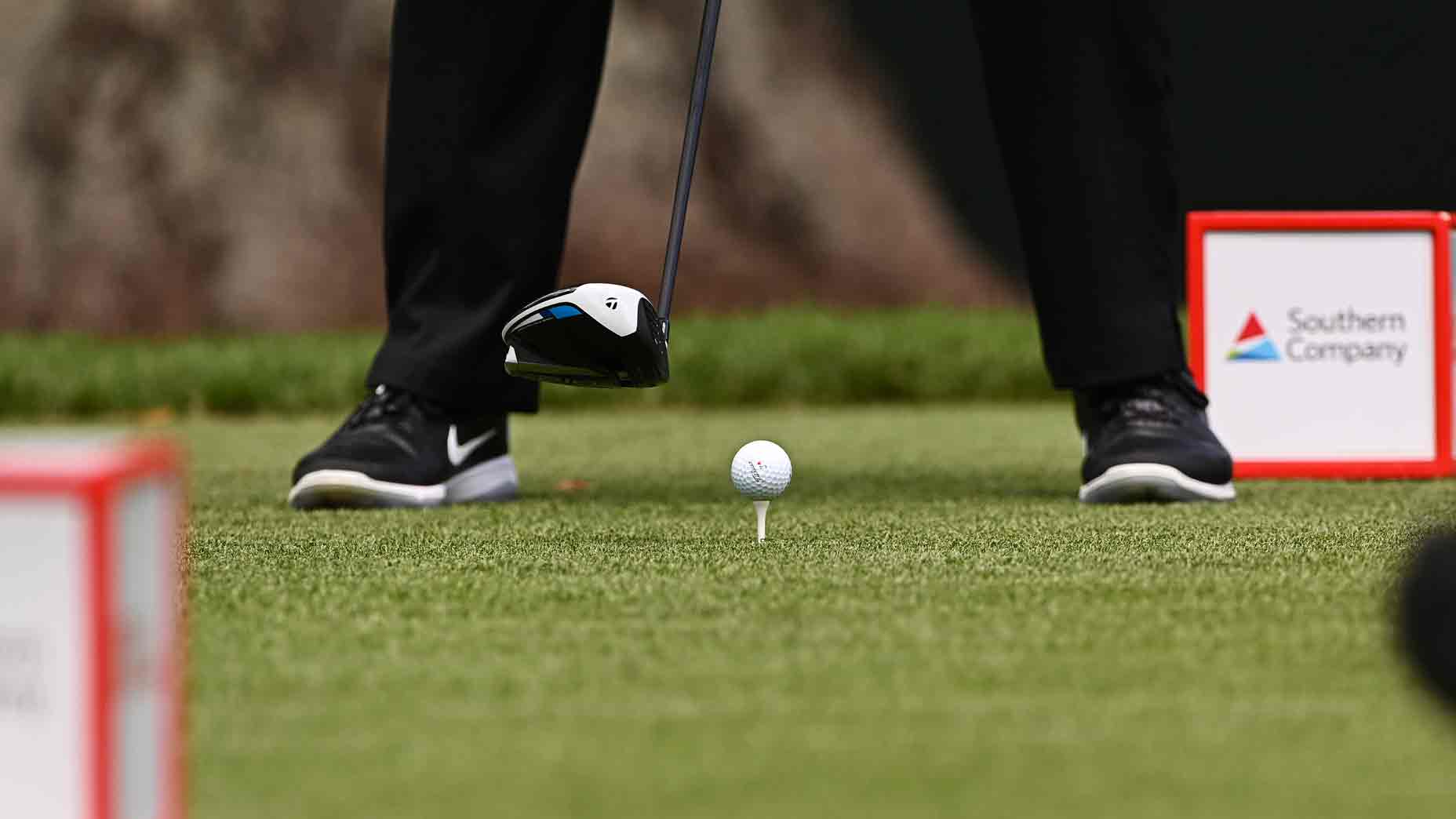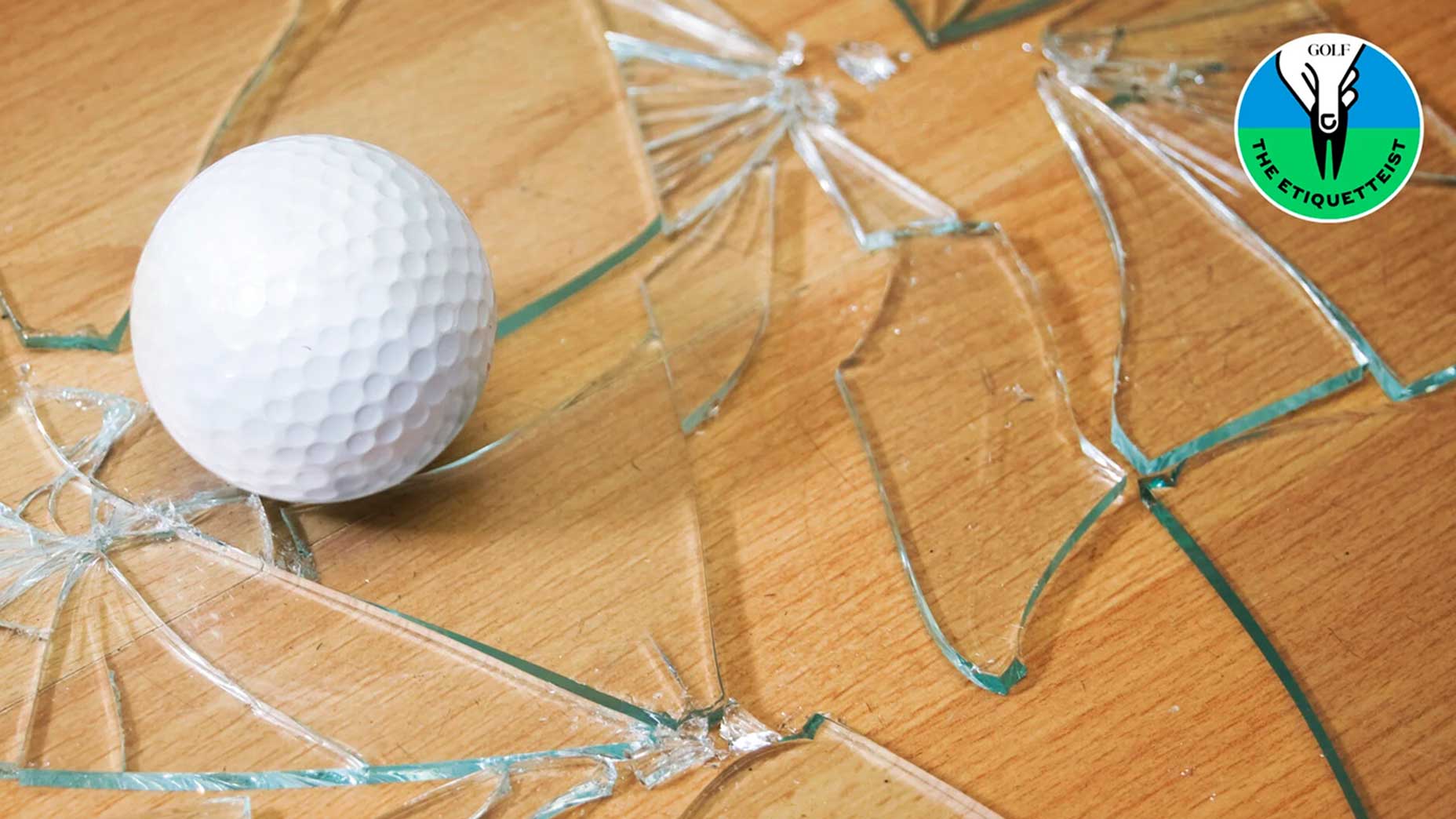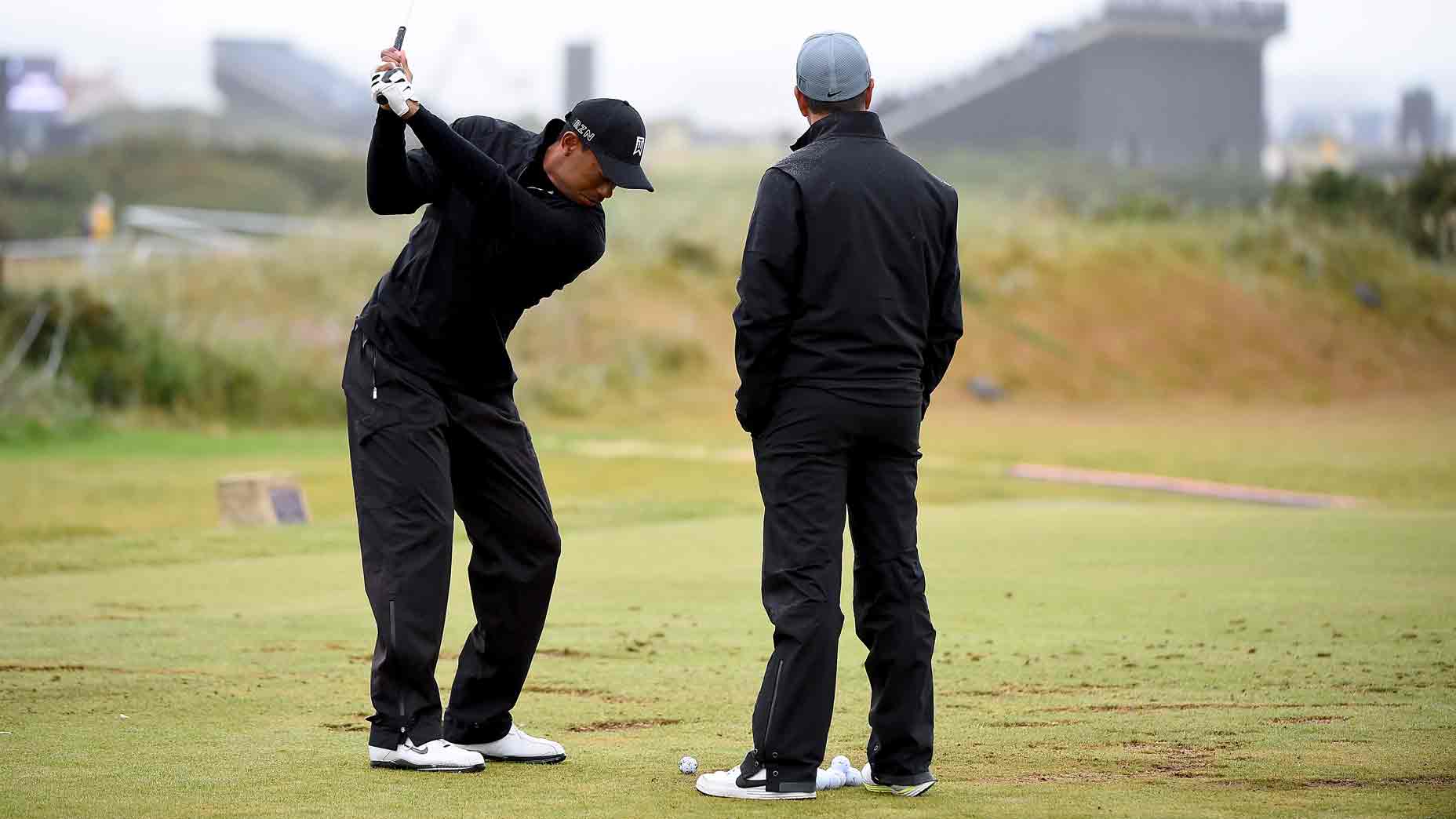What ‘Curb Your Enthusiasm’ can teach you about golf etiquette, technique
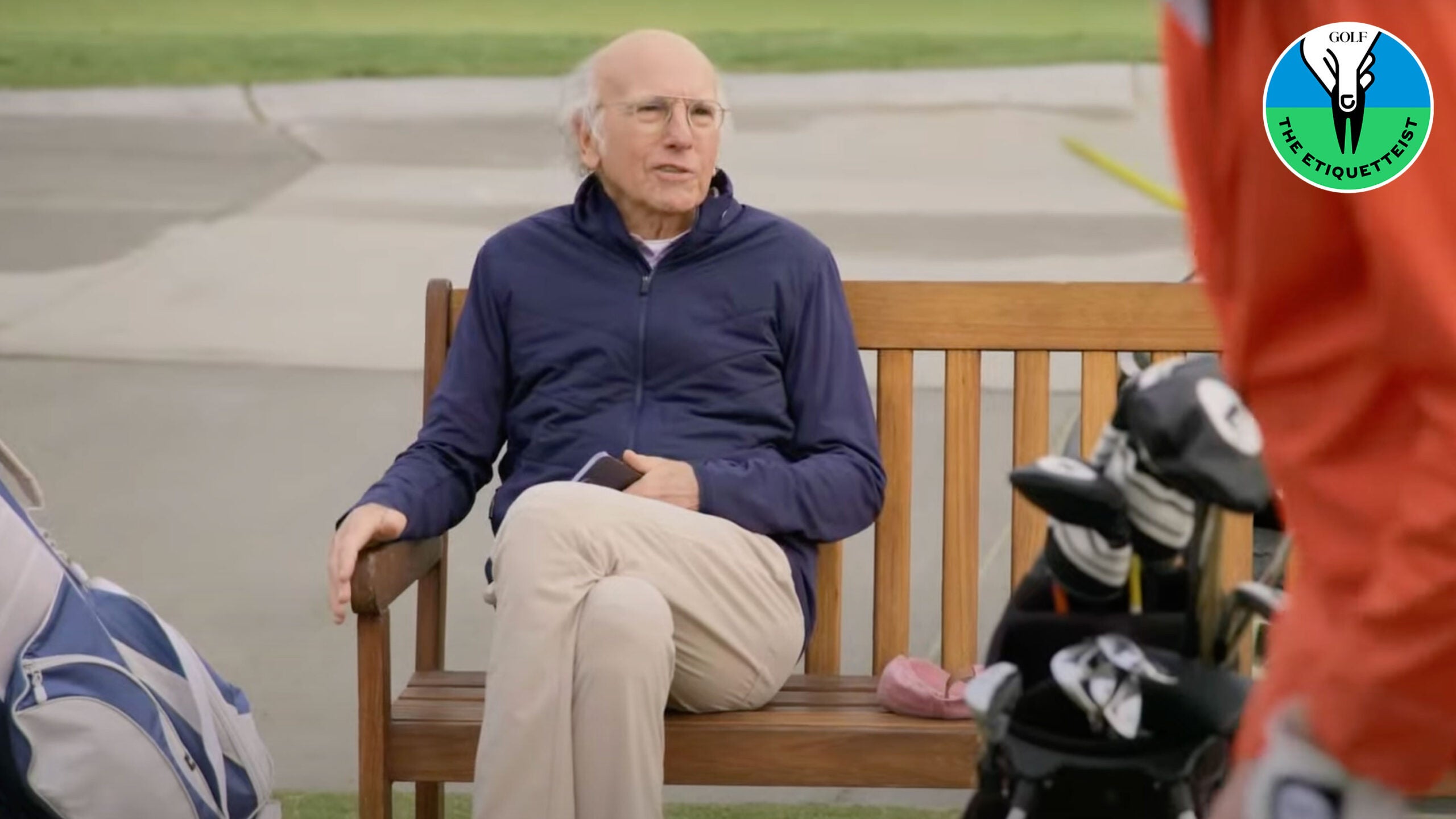
Like his golf swing, Larry David's etiquette could use some work.
Getty Images
This past week in Los Angeles golf offered us a big batch of teachable moments. From Jordan Spieth, Rory McIlroy and Hideki Matsuyama, respectively, we learned to (1) always double-check your scorecard, (2) never strike a drive until the group ahead has cleared the fairway and (3) take care when grounding the club behind your ball.
But perhaps the most memorable lesson came not from a competitor in the Genesis Invitational but from famed comedy writer and Riviera member Larry David.
If you follow David’s work, you know that golf often features in “Curb Your Enthusiasm,” the comedy of manners on HBO in which David plays a close facsimile of himself. In the most recent episode, which aired Sunday night, David is back at his home course (a loosely fictionalized version of Riviera), this time sitting on a bench behind the driving range, watching and listening as the club pro gives a private lesson. Whatever David does tends to irritate someone, and, in this case, his actions irritate the pro, who asks David to stop eavesdropping (“If you want to book a lesson, call the pro shop,” he says) but not before David has picked up what turns out to be a game-changing tip about the downswing and the move through impact: “vertical drop, horizontal tug.”
With those key words as his cue, David goes out and has the best ball-striking round of his life, ruffling more feathers along the way.
Funny guy, David. But golf is serious business, and for those of us tuning in at home, the scene brought two questions to mind:
Is it really bad form to eavesdrop on a lesson? And what about that tip? Vertical drop, horizontal pull. Does it translate into anything meaningful at all?
First, the etiquette question. According to GOLF Magazine 100 Teacher Tony Ruggiero, drafting on a lesson is a fairly common practice and it is indeed bad form — though not for the reason the “Curb” episode suggests. The real issue isn’t that you’re stealing info that you should be paying for. It’s that you risk making the student uneasy.
“Novice recreational golfers get anxious in front of people anyway,” Ruggiero says. Spying on their lessons only makes matters worse.
In addition to being bad etiquette, Ruggiero says, eavesdropping is also a bad way to learn, as the problem being addressed might not be your problem.
“I equate it to going into a drug store and taking one of everything off the shelves,” he says. “Everything in there can help you if it’s for what is wrong with you. But taking one thing or all of them can make you really sick.”
But what about the tip in the “Curb” episode: Vertical drop, horizontal tug. What, if anything, might it cure?
Possibly a slice-inducing over-the-top move, Ruggiero says. What the pro on “Curb” appears to be addressing is the sequence of the downswing.
“My guess he’s trying to get the student to get the arms to fall from the top and allow the club to shallow” so he can attack the ball from the inside. “If right from the top you rotate your upper body or turn before you shift or get on to the lead leg, the club goes too far outside.”
Starting the downswing instead with that vertical drop puts the club on a shallower path, Ruggiero says, “which gives the player time to shift onto the lead foot.” From that position, “they can then turn horizontally” toward the target. In all likelihood, Ruggiero says, that last part is the horizontal tug.
So, there you have it. While imitating Larry David’s on-course conduct is a bad idea, emulating his new action might not hurt. The results could be pretty, pretty good.


